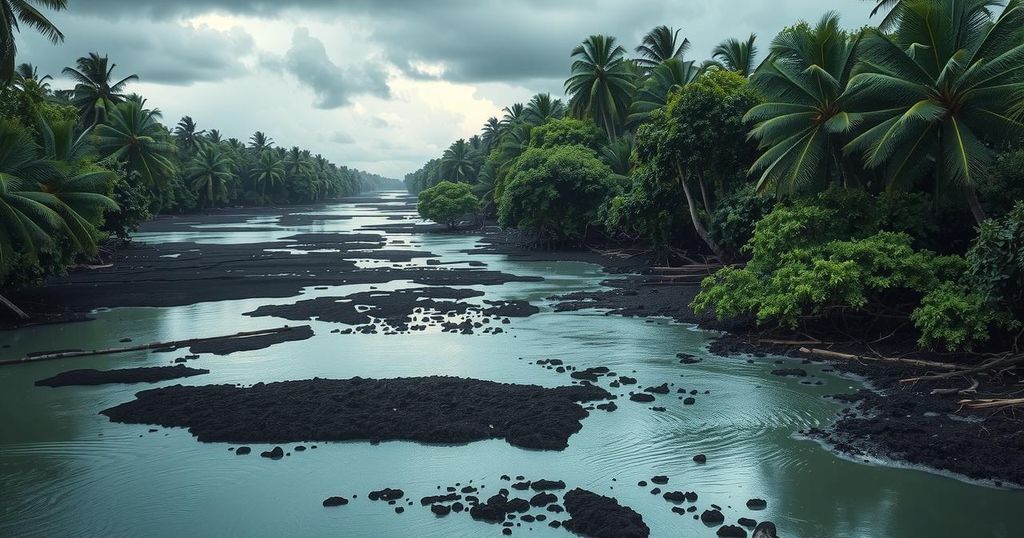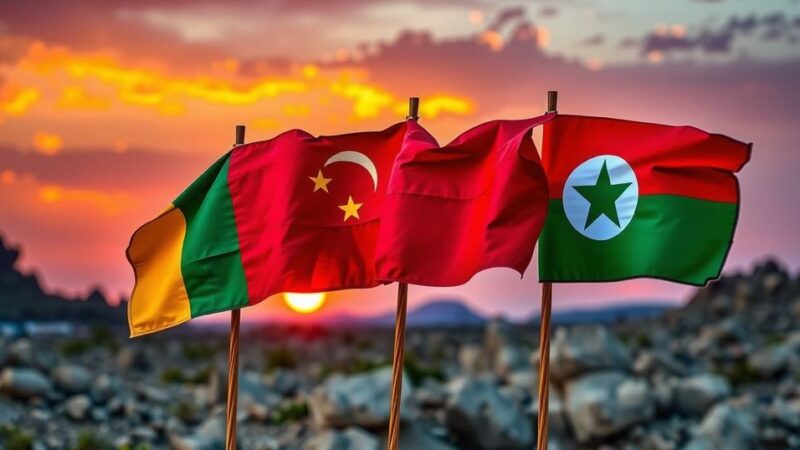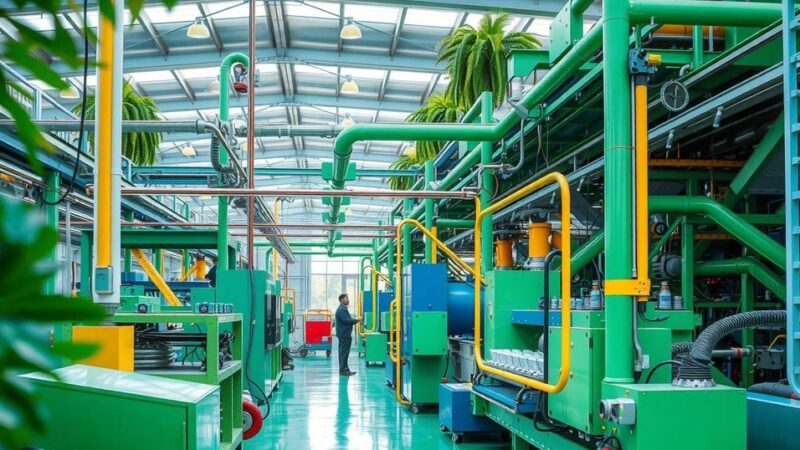Ecuador’s recent oil spill in Esmeraldas released over 25,000 barrels into local rivers, severely impacting ecosystems and the economy of half a million people. Despite the declaration of a national emergency, government response has been criticized as inadequate. The aging pipeline infrastructure, compounded by proposed new oil auctions, highlights ongoing risks. Advocacy efforts like Amazon Watch’s campaign strive to prevent future disasters and protect vulnerable communities.
On March 13, Ecuador experienced a catastrophic oil spill that dumped over 25,000 barrels of crude oil into the rivers and protected zones of Esmeraldas. This disaster has severely impacted local ecosystems, contaminated drinking water, and disrupted the livelihoods of approximately half a million residents. The oil caused substantial damage to mangroves and wildlife in a protected area where the Esmeraldas River flows into the Pacific Ocean.
Witnesses recounted the dramatic scene of oil erupting in a “geyser” for several hours, prompting the mayor of Esmeraldas to declare a national emergency. President Daniel Noboa, amid his electoral campaign, attempted to diminish the significance of the spill, with the environment minister initially underreporting the barrels released. Compounding the crisis, a reservoir of contaminated water breached on March 25, worsening the pollution.
On April 7, residents from Quinde and surrounding communities protested the government’s slow and inadequate response, facing a dire lack of essential services such as clean water and compensation. Fishing and tourism, vital to the local economy, remain paralyzed nearly a month after the incident. Furthermore, President Noboa visited Esmeraldas for a campaign event but did not engage with affected communities.
This incident marks Ecuador’s most severe oil disaster in over three decades, highlighting ongoing issues of oil-related contamination within the country. The Trans-Ecuadorian pipeline system (SOTE), constructed in 1972, was designed with minimal safety features which contributed to its vulnerability. Crossing numerous geographical challenges, the pipeline exposes communities to frequent spills and environmental hazards.
Petroecuador has managed the aging infrastructure since 1989, resulting in chronic leaks and neglect, with government records documenting over 1,100 oil spills from 2005 to 2015 alone. The average number of spills continued to increase dramatically, with reports indicating up to 11 spills weekly by 2022. Much of the cleanup remains inadequate, leaving enduring health and economic repercussions unresolved for local populations.
Looking ahead, the situation is aggravated as both the current and opposition political candidates plan to initiate new oil auctions. These ventures aim to exploit additional rainforest areas, thereby worsening the risk associated with an already overstressed infrastructure. The potential for further oil extraction threatens both Indigenous territories and environmental stability.
Amazon Watch is standing in solidarity with the communities of Esmeraldas and the Indigenous populations of the Amazon in opposing government plans for new extractions. Their End Amazon Crude campaign aims to halt future drilling and aid in international pressures against Ecuador’s forthcoming oil permissions, with hopes of preserving an estimated 800 million barrels of oil, protecting biodiversity and climate health in the region.
The significant oil spill in Ecuador’s Esmeraldas province underscores a grave environmental crisis, exacerbating existing vulnerabilities linked to the aging oil infrastructure. The lack of adequate government response and the looming threat of new oil auctions illustrate a concerning future for the affected communities. Initiatives by organizations like Amazon Watch aim to address these challenges and advocate for sustainable practices, emphasizing the urgent need for accountability and environmental protection.
Original Source: amazonwatch.org






